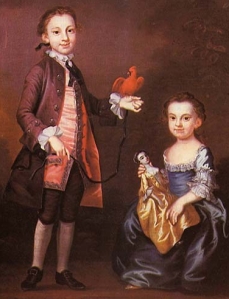 “My friends and I might still be 11, and we might still be in elementary school, but we know . . . that we have seven short years until we too have the right to vote.”[1] Speaking at the March for Our Lives event, 11-year old Naomi Wadler eloquently reminded us that childhood is ephemeral. Since they are future voters, she warned Capitol Hill to take the words, emotions, and pleas of children seriously. In many ways, she was also speaking to Florida State Representative Elizabeth Porter who recently exclaimed, “The adults make the law because we have the age, we has [sic] the wisdom, and we have the experience.”[2] For many like Rep. Porter, there has been something disturbing in this moment of youth activism. It cuts to the core of social stability based on the patriarchal family order—that children are subordinate, passive members of society. We inherited this idea from the eighteenth-century revolutionary era, a point in time when age became a main determinant in who could be considered a citizen and an adult. Continue reading
“My friends and I might still be 11, and we might still be in elementary school, but we know . . . that we have seven short years until we too have the right to vote.”[1] Speaking at the March for Our Lives event, 11-year old Naomi Wadler eloquently reminded us that childhood is ephemeral. Since they are future voters, she warned Capitol Hill to take the words, emotions, and pleas of children seriously. In many ways, she was also speaking to Florida State Representative Elizabeth Porter who recently exclaimed, “The adults make the law because we have the age, we has [sic] the wisdom, and we have the experience.”[2] For many like Rep. Porter, there has been something disturbing in this moment of youth activism. It cuts to the core of social stability based on the patriarchal family order—that children are subordinate, passive members of society. We inherited this idea from the eighteenth-century revolutionary era, a point in time when age became a main determinant in who could be considered a citizen and an adult. Continue reading
-
Subscribe
Subscribed
Already have a WordPress.com account? Log in now.